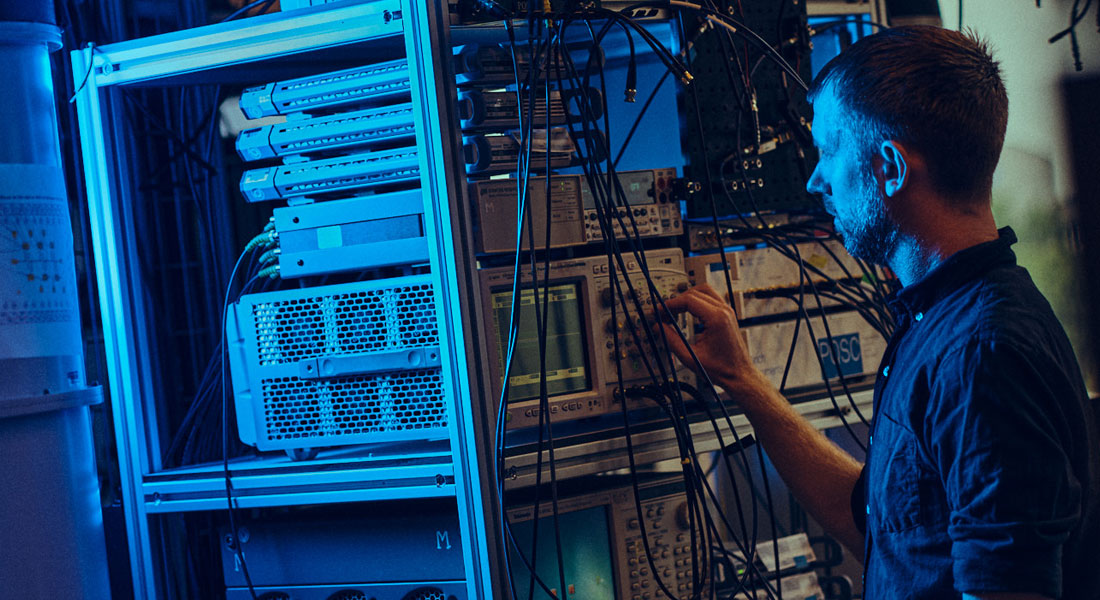Postdoctoral position in experimental quantum optics
The Niels Bohr Institute, Faculty of Science at University of Copenhagen invites applicants for a postdoctoral fellowship in experimental quantum optics, starting in the Fall of 2024. The successful candidate will contribute to the development of new quantum memories for light based on atomic and nanophotonic arrays (Q-MANTA).

The Q-MANTA project is financed by the Novo Nordisk Foundation Quantum Computing Programme (NQCP).
You will be an integral part of a collorative environment at NQCP and QUANTOP, the Danish Center for Quantum Optics, that offer opportunities for innovation at the intersection of state-of-art research and technology in quantum optics.
This position is open from 1 October 2024 or as soon as possible thereafter.
This is a fixed-term and fully funded 2-year position.
Inquiries about the position can be made to Jean-Baptiste Béguin (jbeguin@nbi.ku.dk).
The University wishes our staff to reflect the diversity of society and thus welcomes applications from all qualified candidates regardless of personal background.
The project
The project will focus on experimental development of a new platform for optical quantum memories and new tools to combine cold atoms and nano-scale dielectric structures. This project is highly multidisciplinary and we expect that the candidate will contribute to research on nanofabrication, optimal design and characterization of nanophotonic structures compatible with atoms-based quantum physics.
Place of employment and scientific environment
Research will be carried out in collaboration at NQCP (https://nqcp.ku.dk) and QUANTOP (https://quantop.nbi.ku.dk) – Center for Quantum Optics at the Niels Bohr Institute (Department of Physics) at the University of Copenhagen. Our research facilities include modern laboratories located on Blegdamsvej 17, Copenhagen ∅.
QUANTOP is a vibrant group of approximately 20 researchers and students working on quantum physics of atoms, light and mechanical objects with particular emphasis on interfacing disparate quantum systems with light. Generation of entangled states of light, atoms, material objects, and their use for quantum sensing, quantum communication and quantum simulations are the core activities of the group.
At both NQCP and QUANTOP, we offer creative and stimulating working conditions in dynamic and international research environment. The project takes place in a highly collaborative and multidisciplinary environment with regular interactions with physicists and quantum engineers.
Profile
We are looking for a highly motivated and enthusiastic scientist with the following competencies and experience:
Essential experience and skills:
- You have a PhD at the intersection of quantum optics and nanophotonics
- You are experienced in nanofabrication (e.g., photonic waveguides, e-beam litography)
- You have good skills in programming languages and numerical simulation of electromagnetic fields (FDTD, FEM)
- You have an active interest in research within quantum nanophotonics
- Excellent English skills written and spoken
Desirable experience and skills:
- Proficient communication skills and ability to work in teams
- Experience with conducting and disseminating research, e.g. at conferences and writing scientific papers
- You have an interest in knowledge sharing activities, teaching and co-supervision of students (BSc., MSc., Ph.D)
Terms of employment
The position is covered by the Memorandum on Job Structure for Academic Staff.
The starting date is 1 October 2024 or later after agreement.
This is a fixed-term and fully funded position for two years.
The average weekly working hours are 37 hours per week.
Terms of appointment and payment accord to the agreement between the Ministry of Finance and The Danish Confederation of Professional Associations on Academics in the State.
Appointment will be subject to receipt of a security clearance.
Depending on qualifications, a salary supplement may be negotiated.
Foreign and Danish applicants may be eligible for tax reductions, if they hold a PhD degree and have not lived in Denmark the last 10 years.
How to apply
Your application including all attachments must be in English and submitted electronically by clicking APPLY NOW below.
Please include
- Cover/motivation letter of application (max. two pages). This should include your motivation and background for applying to this position. Please describe yourself in relation to the competences listed above in the “Profile” section.
- Curriculum vitae (CV) including information about your education, experience, language skills and other skills relevant for the position.
- A complete list of publications
- Diplomas (Master and PhD degree or equivalent)
- (1-3) reference letters (if any).
According to Danish law, reference letters must be uploaded by the applicant him/herself. The recruiting committee must NOT obtain reference letters which content is not known to the applicant.
The deadline for applications is 12 June 2024, 23:59 GMT +2
After the expiry of the deadline for applications, the authorized recruitment manager selects applicants for assessment on the advice of the Interview Committee.
You can read about the recruitment process at https://employment.ku.dk/faculty/recruitment-process/.
Interviews will be held shortly after the application deadline.
APPLY NOW
Part of the International Alliance of Research Universities (IARU), and among Europe’s top-ranking universities, the University of Copenhagen promotes research and teaching of the highest international standard. Rich in tradition and modern in outlook, the University gives students and staff the opportunity to cultivate their talent in an ambitious and informal environment. An effective organisation – with good working conditions and a collaborative work culture – creates the ideal framework for a successful academic career.
